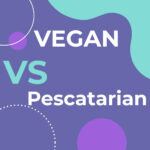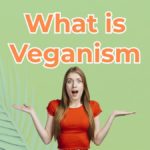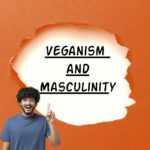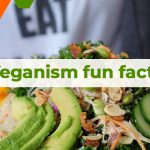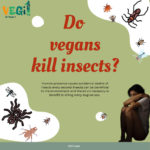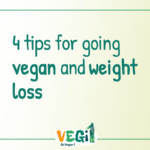When Did Veganism Become So Popular?
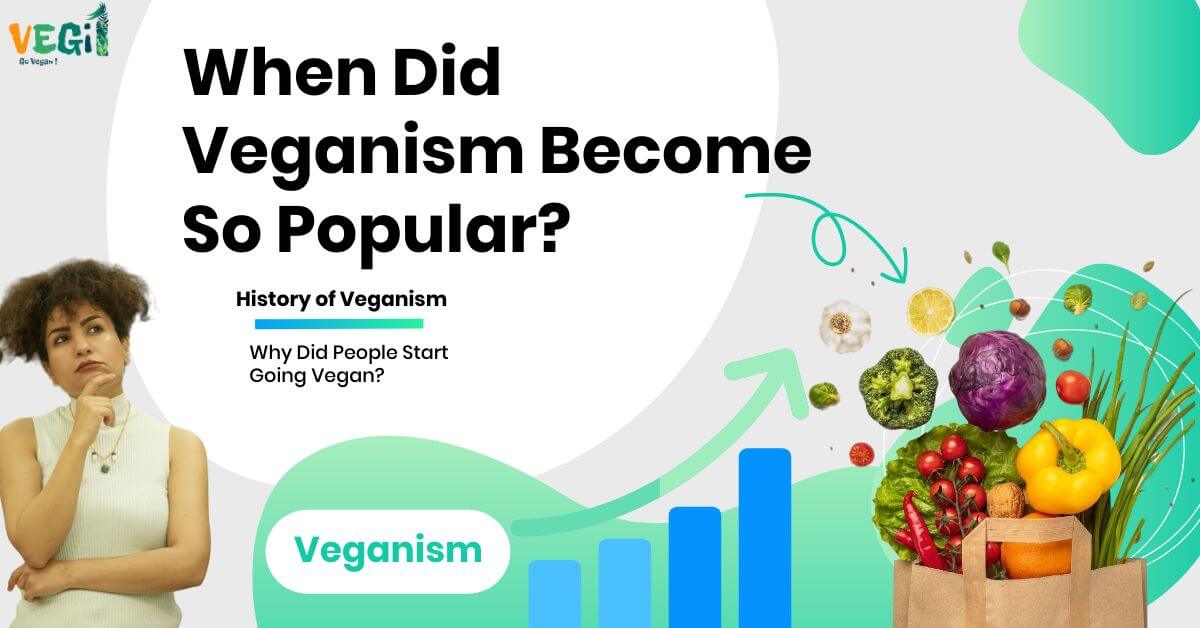
Hi everyone, I’m Sara, and my family and I are vegan. We get asked a lot of questions about our lifestyle. People are curious to know when vegetarianism started, why it’s become so popular, and why we would choose this diet for ourselves and our kids.
Some people even say that our ancestors were carnivores, so why would we choose this for ourselves and our kids?
I used to be one of those people who thought that humans were naturally carnivores. But then I started learning more about the history of human nutrition, our body anatomy, and the evolution of vegetarianism. I also wanted to learn more about the factors that have contributed to veganism’s popularity. And the more I learned, the more I realized that there are actually a lot of good reasons to go vegan.
In this article, I’ll explore the history of vegetarianism, highlight some famous vegetarians from history, and I’m going to share what I’ve learned about some of the challenges and benefits of a vegan diet.
So let’s dive in and learn more about why veganism is so popular!
In this article you will read:
Humans have been herbivores since the beginning.
The human body is naturally adapted to consume plant matter. Our teeth are flat and designed for grinding plant matter, not tearing flesh.
Our canine teeth are small and not as pointed as those of carnivores. Our jaws also move in a side-to-side motion, which is ideal for chewing plant foods.
Our digestive system is also long and winding, which is ideal for digesting plant fiber.
Our appendix is also thought to be a vestigial organ from our omnivorous ancestors. However, recent studies have shown that the appendix is actually quite useful for breaking down plant matter.
Archaeological evidence suggests that our ancestors primarily subsisted on a plant-based diet, occasionally consuming small insects. They ate what was safe and accessible, which usually consisted of plants, fruits, and nuts.
Scientists believe that our ancestors were vegetarians for most of their history. Only in the last few thousand years, as humans began to domesticate animals, did meat become a regular part of our diet. And even then, meat was only eaten on special occasions.
So if you’re thinking about going vegetarian, know that you’re not going against your natural instincts. Your body is perfectly designed to thrive on a plant-based diet.
Did you know that the concept of vegetarianism has been around for centuries?
Evolution of Vegetarianism
If you, like me, are curious about the evolution of vegetarianism, you should know the term “vegan” is relatively modern, but the idea of refraining from consuming animal products has ancient origins.
One of the earliest known instances of vegetarianism can be traced in back to ancient Egypt. Pharaoh Akhenaten, who lived around 1300 BC, banned animal sacrifice due to his belief in the sanctity of all lifes.
The Roman poet Ovid also condemned the consumption of animal flesh, highlighting the moral implications of eating meat In his poems.
The first recorded vegetarians in ancient Greece were the Pythagorean and his followers, a Greek philosophical school founded by Pythagoras in the 6th century BC. Pythagoras believed that all living things were sacred and should be respected, and he prohibited his followers from eating meat. They also believed that eating meat was harmful to the body and mind.
Also, there is evidence of vegetarian practices in ancient China. Tofu, a popular vegetarian food in China, originated in the Zhou dynasty.
Ancient Vegetarian Cultures
Vegetarianism has a long history, dating back to ancient India. The Hindu religion teaches that all living things are interconnected and that we should avoid harming other creatures. Jainism, another major religion in India, also teaches ahimsa or non-violence.
So, India has a long-standing tradition of vegetarianism deeply rooted in its religious and cultural beliefs.
Hinduism, Buddhism, and Jainism all promote the concept of ahimsa or non-violence towards all living beings. They believe that our souls may be reincarnated in different bodies of humans and animals, and any pain we inflict on animals will enter our bodies and trap us in bad karmic cycles.
The 24th Tirthankara, Vardhamana Mahavira, who lived around 500 BC, played a significant role in promoting vegetarianism and ahimsa. His teachings continue to influence many people in India, making it a country with a large population of vegetarians.
Around the same time, Siddhartha Gautama was also discussing vegetarian diets with his followers.
Vegetarianism spread to Europe in the 17th century. The first vegetarian society was founded in England in 1847.
It is clear that avoiding animal products and being kind to animals has been around for a long time.
I think it’s interesting that many historical figures and scientists have come to the conclusion that eating animal meat and their products can have a negative impact on our spirit, morals, and thoughts.
Which countries currently have the most vegetarians?
Today, India has the highest percentage of vegetarians in the world, with an estimated 38% of the population following a vegetarian diet.
Here is a table of the number of vegetarians and vegans in different countries:
| Country | Vegetarians | Vegans |
| India | 420 million | 10 million |
| China | 200 million | 10 million |
| United States | 90 million | 3 million |
| Germany | 60 million | 2 million |
| United Kingdom | 50 million | 1 million |
| Brazil | 35 million | 1 million |
| Mexico | 19 million | 1 million |
| Indonesia | 16 million | 0.5 million |
| Taiwan | 14 million | 0.2 million |
| Israel | 13 million | 1 million |
| Italy | 10 million | 1 million |
| Switzerland | 10 million | 0.5 million |
Source:Worldanimalfoundation
As you can see, India has the highest number of vegetarians in the world, with over 420 million people following a vegetarian diet. This is followed by China, the United States, Germany, and the United Kingdom.
Rise of Veganism: Why Did It Become So Popular?
Veganism as a distinct concept gained prominence in the 20th century. Donald Watson, a British woodwork teacher, coined the term “vegan” in 1944. He sought to create a movement that not only avoided animal consumption but also rejected the use of animals for any purpose, including clothing and entertainment.
-
The ethical implications of eating animals
One of the biggest reasons for the popularity of vegetarianism is that people are becoming more aware of what happens in animal farms and slaughterhouses, and the ethical implications of eating animals. The spread of media and people’s access to the internet has made it possible for us to learn more about the way animals are raised and killed in factory farms. Videos, documentaries, and horrible images of torture, suffering, and killing animals have been published that anyone can watch. People realize that they should not be involved in this cruelty.
The scenes that were once hidden from us by the meat and dairy industries are now out in the open, and people are starting to see the truth about this industry. They’re realizing that the meat and dairy industries are built on violence and exploitation.
This is leading more and more people to stop eating meat and dairy products and they’re choosing to eat plant-based foods instead.
More and more people are realizing that animal testing is terrible, and they’re trying to buy products that are cruelty-free and don’t involve animal testing.
-
The Healthiest Choice for You and the Planet
Another reason why vegetarianism has become more popular is the health benefits of this diet. Studies have shown that vegetarians have a lower risk of heart disease, cancer, and other chronic diseases. They also tend to be thinner and have more energy.
Food and drug organizations and health research institutes are publishing more and more research on the harms of consuming meat and dairy. This is giving people the information they need to make healthier choices about what they eat.
In recent decades, many articles and studies have been published that show that meat consumption is directly linked to heart disease, cancer, and diabetes. The American Nutrition Association has officially announced that a well-planned plant-based diet is healthy, sufficient, and effective in preventing diseases. This vegan diet is suitable for all ages and stages of life, including pregnancy, breastfeeding, adolescence, and infants.
Source:Jandonline.org
12,000 doctors, members of the American Nutrition Association, have invited people to eliminate meat and dairy products for a healthier life.
Source:Pcrm.org
There is also evidence that the way we treat animals can affect our own behavior. Many psychologists and sociologists believe that the violence, suffering, pain, and discomfort we inflict on animals can have a negative impact on our own psyche. This is why some people believe that changing our lifestyle to a vegan one can help reduce crime.
In fact, many influential people and people who have become vegan have reported feeling calmer and kinder after a while.
-
The Environmental Impact of Meat Production
I think it’s great that people are becoming more conscious of their impact on the environment. Nowadays, More and more people are becoming aware of the environmental impact of meat production. The meat industry is a major contributor to climate change, water pollution, and deforestation. Lots of people go vegetarian as a way to reduce their carbon footprint and protect the planet.
In recent years, we’ve seen a lot of devastating environmental events, like fires, floods, and global warming. These events have made people more aware of the importance of protecting our planet. Governments are enacting new laws to protect the environment.
People are slowly realizing that the main cause of world hunger and the death of hungry children in third-world countries is the meat industry and slaughterhouses. People are slowly learning how important their choices are to the environment, and they are choosing veganism as a great way to protect the earth.
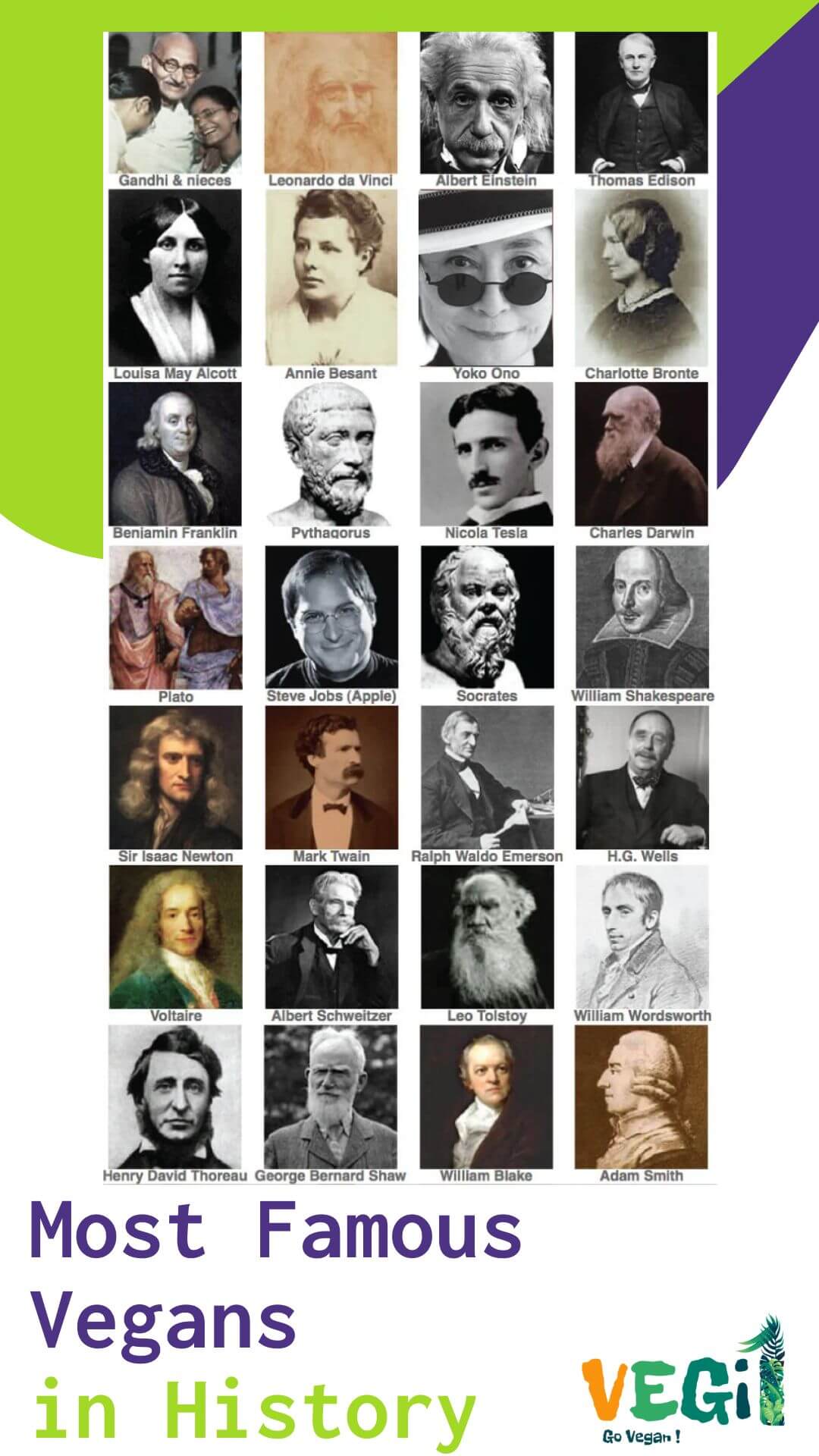
Famous Vegetarians: Inspiring Figures Who Led the Way
Throughout history, many influential figures have embraced vegetarianism, inspiring others to follow suit. Let’s explore some of these famous vegetarians and learn about their impact.
-
Pythagoras (570-495 BCE):
Pythagoras, the Greek philosopher and mathematician, is often considered the first vegan. He believed that all living things are connected and that eating meat was wrong.his teachings influenced other Greek philosophers and scholars.
Pythagoras is one of the historical figures who helped promote vegetarianism.
-
Sadegh Hedayat (1903-1951):
The Iranian writer and poet Sadegh Hedayat was a lifelong vegetarian. He believed that vegetarianism was a way to live in harmony with nature and to reduce suffering. He once wrote, “I do not eat meat because I do not want to participate in the killing of animals.”
-
Leonardo da Vinci (1452-1519) :
Leonardo da Vinci, the renowned Italian artist, scientist, and inventor, was known for his vegetarian lifestyle. He believed that eating meat was unhealthy and cruel. Leonardo’s vegetarianism was driven by both ethical and health considerations.
He once wrote, “I have no wish to eat the flesh of an animal which has been tortured and killed.
-
Mahatma Gandhi (1869-1948) :
Mahatma Gandhi, the Indian activist and leader of the Indian independence movement, was a strict vegetarian who believed that the violence we inflict on animals enters our blood and spreads to our bodies. And to get rid of anger suffering and unhappiness, we have to change our food choices. Gandhi’s vegetarianism was deeply rooted in his philosophy of ahimsa.
He said, “The greatness of a nation and its moral progress can be judged by the way its animals are treated.”
-
Albert Einstein (1879-1955):
Albert Einstein, a German-born theoretical physicist, was a vegetarian for most of his life. He reportedly adopted a vegetarian diet in the early 1900s after reading a book about the health benefits of a plant-based diet.
He said, “I have always eaten animal flesh with a somewhat guilty conscience.”
-
Isaac Newton (1643-1727):
The English physicist and mathematician Isaac Newton was a vegetarian for most of his life. He reportedly gave up meat after witnessing the cruel treatment of animals at a slaughterhouse.
-
Alexander von Humboldt (1769-1859):
The German naturalist and explorer Alexander von Humboldt was a vegetarian for most of his life. He was motivated to adopt vegetarianism as a way to harmonize with nature and reduce human suffering because of his belief in the interconnectedness of all lives and the reincarnation of the soul.
-
Johann Wolfgang von Goethe (1749-1832):
The German poet and playwright Johann Wolfgang von Goethe was a vegetarian for most of his life. He was motivated by his belief in the importance of compassion for animals, and he saw vegetarianism as a way to live a more ethical life.
-
Leo Tolstoy (1828-1910):
The Russian novelist and philosopher Leo Tolstoy was a vegetarian for most of his life. He was motivated by his belief in non-violence and his concern for the environment. He once wrote, “The time will come when men will look upon the murder of animals as they now look upon the murder of men.”
-
George Bernard (1856-1950):
George Bernard Shaw was an Irish playwright and Nobel Prize winner who was a vegan for over 50 years. He was a strong advocate for animal rights and wrote extensively about the subject. He said that “the only way to stop cruelty to animals is to stop eating them.”
-
Paul McCartney (born 1942):
Paul McCartney, the English singer-songwriter and former Beatle, has been a vegetarian since 1975 and a vegan since 2009. He has said that he made the change for ethical reasons and that he feels better about it. He is also a strong advocate for animal rights and has spoken out against animal testing and factory farming.
He said: I became a vegetarian because I was “against cruelty to animals” ” and became a vegan because I wanted to “live a healthier lifestyle.”
-
George Bernard (1856-1950) :
George Bernard Shaw was an Irish playwright and Nobel Prize winner who was a vegan for over 50 years. He was a strong advocate for animal rights and wrote extensively about the subject. He said that “the only way to stop cruelty to animals is to stop eating them.”
-
Paul McCartney (born 1942) :
Paul McCartney, is an English singer-songwriter and former Beatle who has been a vegan since 2009. He has said that he made the change for ethical reasons and that he feels better about it. He is also a strong advocate for animal rights and has spoken out against animal testing and factory farming.
-
Leonardo DiCaprio (born 1974) :
Leonardo DiCaprio, is an American actor who has been a vegan since 2018. He has said that he made the change for environmental reasons and that he is concerned about the impact of animal agriculture on the planet. He is also a strong advocate for climate change action and has donated millions of dollars to environmental causes.
-
Isaac Bashevis Singer (1904-1991) :
Isaac Bashevis Singer, was a Polish-born American author and Nobel Prize winner who was a vegan for over 30 years. He was a strong advocate for animal rights and wrote several stories about the subject. He said that “animals are our brothers and sisters” and that we should treat them with respect.
These are just a few examples of historical celebrities who were vegan. There are many others, and the number of vegans has been growing rapidly all the time.
In recent years, many famous people and athletes have accepted veganism and promoted the vegan lifestyle more. They raise awareness about vegetarianism and encourage their followers to choose this lifestyle and be kind to animals and the environment.
Famous vegans include musicians like Ariana Grande and Miley Cyrus, actors like Natalie Portman and Joaquin Phoenix, and athletes like Lewis Hamilton and Serena Williams. Their public advocacy for veganism raises awareness and encourages others to consider the benefits of a plant-based lifestyle.
they are very influential in the veganism and vegetarianism community and they try to encourage people to use plant alternatives with their support of animals and vegan products and products without cruelty and without animal testing.
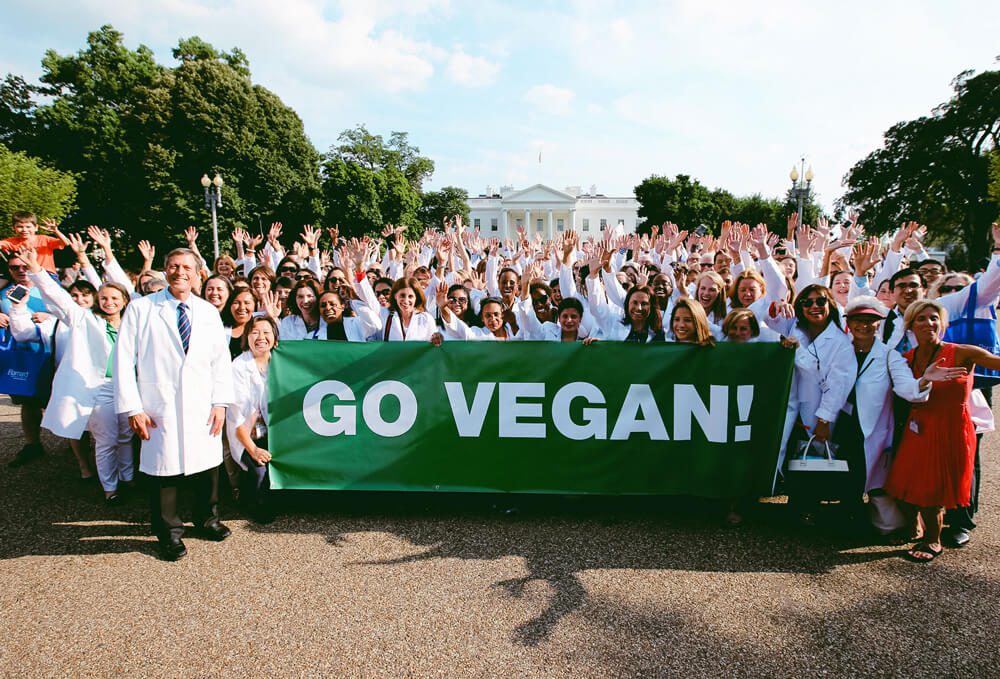
The Challenges of Veganism: Overcoming Obstacles
The number of vegans is increasing daily, but this transition and change to a vegan lifestyle can be socially difficult for people.
Finding Vegan Food
Finding suitable food options was one of my initial challenges for becoming a vegan. In my country, there are few vegan restaurants and vegan products, and we always have to take a dish with us when we go out.
Many vegan products were unavailable to me, and I had to make these products at home. Little by little, I became more creative. I found many online stores with vegan products, and I changed the food recipes. Now, our meals are full of colorful and delicious vegetarian food, and I will share our recipes with you on this site.
Dealing with social pressure
This is the most important challenge my family and I have ever faced. The pressure and misconceptions from our friends and family and their criticism of our choice were a bit annoying at first. At first, we felt rejected in family gatherings. But, gradually, new people came our way, and we found friends with the same opinions and thoughts as us.
I had to research and read more to answer the questions of family and people around me. Now, our friends are all vegetarians. People’s questions don’t bother us anymore; we are used to criticism and patiently answer them.
The Benefits of Veganism
I believe that a vegetarian diet is the healthiest option for humans. Plant-based foods are naturally low in saturated fat and cholesterol, two major risk factors for heart disease. They’re also high in fiber, which can help to lower cholesterol and regulate blood sugar levels. Plant-based foods are also rich in vitamins, minerals, and antioxidants, which are essential for good health.
Of course, it’s important to make sure that you’re getting enough protein on a vegetarian diet. There are many ways to do this, such as eating beans, lentils, nuts, seeds, and tofu. You can also get protein from plant-based milks and yogurts.
There are many resources available to help you make the transition to a plant-based diet. There are a lot of great vegan cookbooks and websites out there that make it easy to eat a healthy and delicious vegan diet. And once you do, you’ll be amazed at how good you feel!
Here are some additional benefits of a vegetarian diet:
- Lower risk of obesity
- Lower risk of type 2 diabetes
- Lower risk of some types of cancer
- Lower risk of heart disease
- Longer life expectancy
- Improved gut health
- Increased energy levels
- Clearer skin
- Increased mental clarity
The future of veganism looks promising.
The number of vegetarians in the world is growing rapidly. According to a 2022 study by the Vegetarian Resource Group, there are now over 800 million vegetarians worldwide.
Vegetarian diets are becoming more affordable and accessible. There are now many vegetarian restaurants and grocery stores, and even fast food chains are offering vegetarian options.
Influential figures throughout history have embraced vegetarianism and veganism, inspiring others to follow suit.
Vegetarian diets are becoming more popular among celebrities and athletes. This is helping to raise awareness of the benefits of vegetarianism and make it more mainstream.
As public awareness continues to increase, more countries are taking steps to protect animals and the environment. Bans on animal testing, clearer labeling on animal products, and official promotions of vegetarianism are becoming more common.
People are becoming more aware of the ethical implications of eating meat. They’re learning about the cruel conditions that animals are subjected to in factory farms, and they’re starting to feel more empathy and kindfor animals.
Going vegan has been amazing for me. I feel healthier, happier and kinder and I want freedom and peace for all beingsIf you’re thinking about going vegan, I encourage you to do your research and make the decision that’s right for you. It’s one of the best things you can do for yourself, the animals, and the planet.
I know that not everyone is ready to go vegan overnight, but I hope this article has helped you learn more about the history of vegetarianism, the reasons why veganism is becoming more popular, and the challenges and benefits of a vegan diet. and inspire you to make some changes in your own life.
I’m still learning about the evolution of vegetarianism, and I’m always interested in hearing from others. If you have any insights or stories to share, please let me know!
Thanks for reading!


